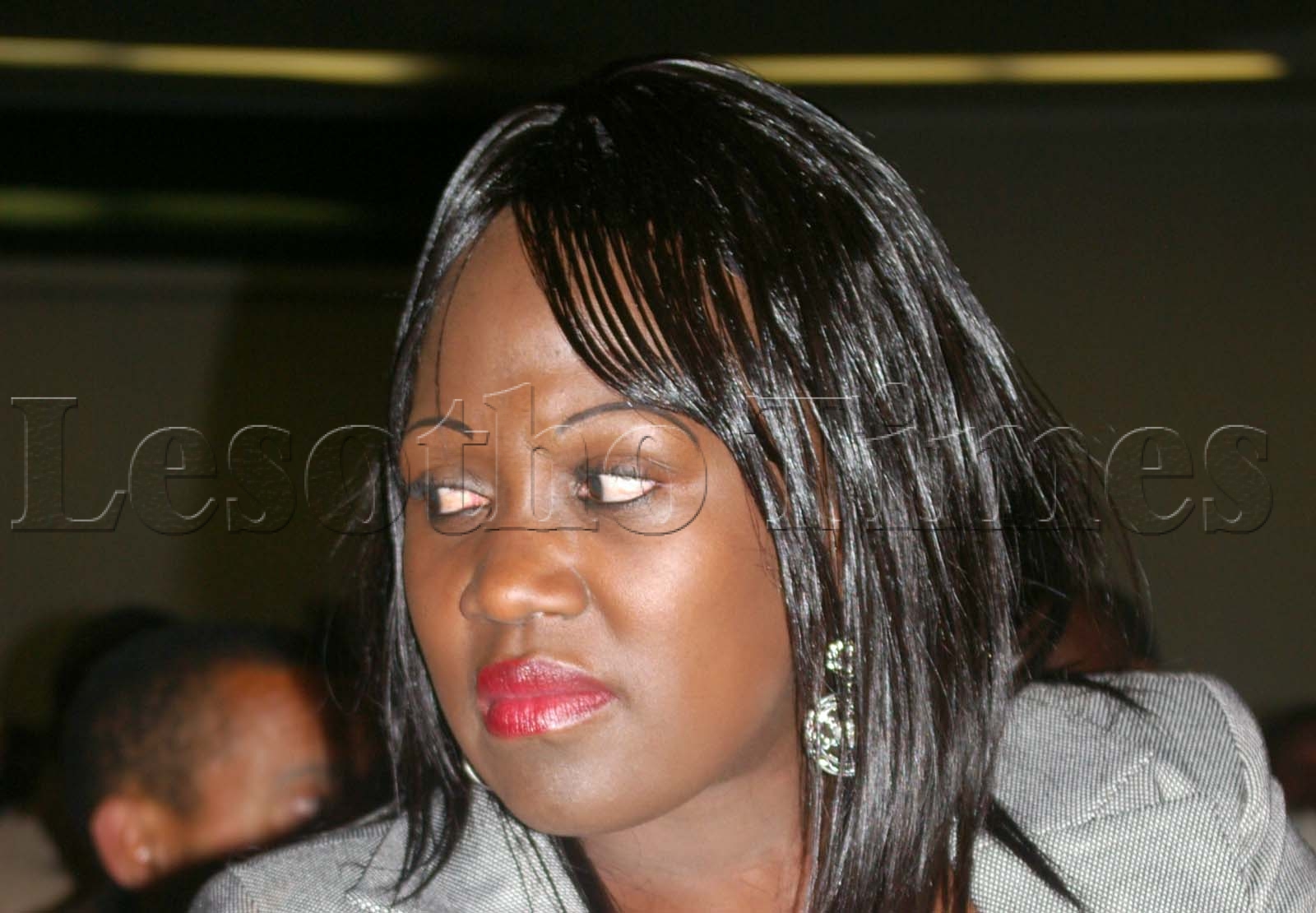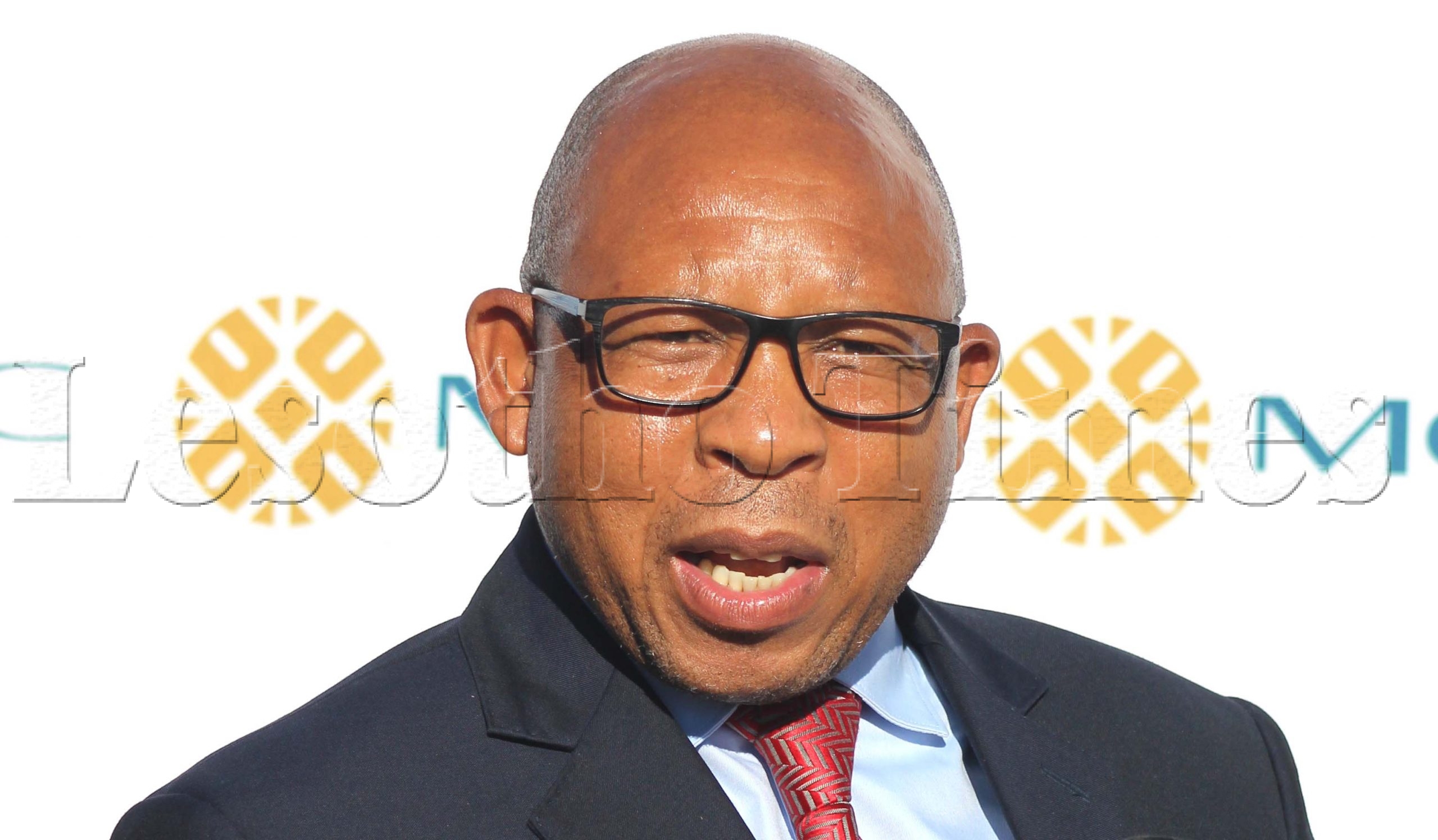
Staff Reporter
HARVEST FM station owner and media practitioner ‘Malichaba Lekhoaba has traded the microphone for the rough and tumble world of politics. This after she formed her own political party, the United for Change (UC), last week.
All that is left is for the UC and another new party, the ‘Mapuleng Montši-led Basotho Liberation Movement (BLM), to be officially registered by the Independent Electoral Commission (IEC) and Lesotho will see the number of its registered political parties shoot up to a whopping 37.
Ms Lekhoaba said her party will advocate greater public participation in governance issues. “People want change because they see that nothing has been changing in the past years and UC will bring that change,” Ms Lekhoaba said, adding her party would prioritise the welfare of taxi operators, small business owners, health workers, factory workers and civil servants who have been neglected by successive self-serving governments.
But analysts are skeptical of Ms Lekhoaba’s capacity to make any meaningful political inroads. If anything, they view the formation of her party as yet another manifestation of the self-seeking phenomenon of individuals who enter into politics for personal enrichment. The analysts say that 37 political parties, most of which never make it to parliament, is too big for a country of Lesotho’s size and economy.
“It’s almost a circus,” a lawyer and political analyst who refused to be identified for professional reasons said of the proliferation of political parties in Lesotho.
“The only change that Mme Lekhoaba and Mme Montši could bring would be to the size of their individual bank accounts if they eventually make it to parliament. On the face of it, it might look like the formation of the two new parties is a sign of a healthy vibrant democracy in Lesotho and it may also look like more women are heeding the call to join and lead political parties. But what we are actually witnessing is more people seeking a ticket to the gravy train that is offered by politics.
“Ours is a small economy incapable of sustaining a vibrant business sector. The government is the biggest employer through lucrative tenders to connected private companies and individuals. We have a low threshold where even one proportional representation seat can enable one to become a minister like the Ntate (Basotho National Party leader Thesele) Maseribane and Mme (Reformed Congress of Lesotho leader Keke) Rantšo. It is therefore, no wonder that some people are forming political parties. The political newcomers know that once they get a single parliamentary seat, they have a good chance of being considered for a cabinet post which would enable them to control the awarding of lucrative government tenders. They also know that as MPs they would instantly qualify for an M37 000 per month salary and other perks such as the M500 000 interest-free loans.”
To put the matter into perspective, Lesotho has only 2, 1 million people, a population much smaller than that of South Africa’s commercial hub city of Johannesburg. According to the latest World Bank estimates, annual gross domestic product (GDP) is only US$2, 7 billion (about M40 billion) and the majority of Basotho survive on less than US$1 per day.
Far bigger countries with more prosperous economies like the United States of America (US) which has 328.2 million people and GDP of well over US$20, 54 trillion have had only two political parties for centuries. Since 1852, the US political system has revolved around the Democrats and the Republicans.
Similarly, the United Kingdom’s political landscape has been dominated by the Conservative and the Labour parties for several decades with the Liberal Democrats playing a fringe role. There is therefore no reason why poor Lesotho should have so many political parties, the analysts say.
If anything, the government should enact tougher new laws to stop the mushrooming of political parties, the analysts say.
Retired National University of Lesotho (NUL) political scientist Professor Kopano Makoa said Lesotho’s democracy could not be compared to that of established and bigger economies like the US and UK whose democratic culture stretched over the centuries but had fewer political parties in operation.
Professor Makoa said due to the high unemployment and lack of business opportunities, some people had been lured into the political arena by the promise of M500 00 interest-free loans and the huge salaries MPs received.
“These and other personal benefits are what drive most people to form their own political parties after having seen that they do not stand a chance in the established parties,” he said.
NUL political science lecturer, Monyake Moletsane, concurred saying the huge number of political parties in Lesotho is not commensurate with the country’s small population and economy. Dr Moletsane said that greed and the desire for personal enrichment were the major reasons for the proliferation of political parties in the country.
“The number of political parties in Lesotho is alarming and is a great cause for concern. It stems from the belief that politics is a lucrative industry for people who have no other way of making money.”
Dr Moletsane was also dismissive of Ms Lekhoaba’s “change” mantra, saying most of the new political players promised new ideologies and policies “only to end up going with the flow of the established self-serving political culture in Lesotho”.
He said a case in point was the Selibe Mochoboroane-led Movement for Economic Change (MEC) which was formed in 2017 on the back of promises to fight graft but had since decided to join the older political parties like the All Basotho Convention (ABC) and the Democratic Congress (DC) in the governing coalition.
Another analyst, who spoke on condition of anonymity, predicted now that he was in government as Development Planning minister, Mr Mochoboroane would no longer be as vocal in the fight against corruption as he was when he was chairperson of the Public Accounts Committee (PAC) and when his party was not a member of any coalition.
Another NUL political science lecturer, Mahlakheng Khosi Mahlakheng, said it would be difficult for new political parties like the UC to make an impact in a political space that was already littered with so many parties.
“There are already too many splinter parties and most of these have split from a mother party due to the greed of politicians. Parties are often formed by politicians for the purposes of acquiring seats in parliament because this translates to a monthly pay cheque for the MP and other perks. It is not about pushing a development agenda as the politicians claim.
“Although this may be viewed by some as a sign of a healthy democracy, the proliferation of parties actually contributes to instability as no party is able to win elections outright, leading to the formation of unstable coalitions,” said Dr Mahlakheng.
He urged the government to enact tougher new laws to stop the mushrooming of political parties.
He said for example, Lesotho could take advantage of the multi-sector reforms process to enact laws to increase the threshold for a party to be registered to 5000 members from the current 500 to curb the proliferation of political parties.
Professor Makoa concurred, saying the current 500-member threshold was too low and encouraged people to register political parties at any moment’s notice.
He said after registering, some of the parties even failed to sustain a following of just those 500 people, suggesting some sort of manipulation in the way the 500 signatures would have been garnered.
Dr Moletsane said tougher laws and more effective monitoring by the IEC would deter fly-by-night politicians from forming new parties just for the purposes of accessing election funding and disappearing thereafter.
Until there are stricter laws, Lesotho’s political landscape will remain a circus with many performers entering and crowding the stage. The country is gravitating towards a scenario where it would be possible to hit a politician each time someone throws a stone into a crowd.







